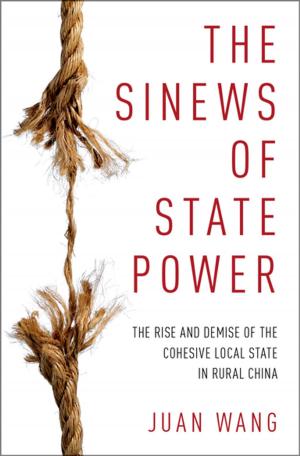State Building In Africa: A Comparative Study of South Africa and the Democratic Republic of the Congo
Nonfiction, Social & Cultural Studies, Political Science, International| Author: | Michael Brulotte | ISBN: | 9781301126408 |
| Publisher: | Michael Brulotte | Publication: | March 14, 2013 |
| Imprint: | Smashwords Edition | Language: | English |
| Author: | Michael Brulotte |
| ISBN: | 9781301126408 |
| Publisher: | Michael Brulotte |
| Publication: | March 14, 2013 |
| Imprint: | Smashwords Edition |
| Language: | English |
With the impetus of industrialization and the eruption of global economies, the growing disparity between poor and wealthy nations has impelled political scientists to ask why some nations are caused to prosper and others doomed to fail. That is, to investigate what inherent or developed factors determine the political, economic, and social realities of the world. This paper will address the question with regard to state-building in Africa by comparatively examining South Africa and the Democratic Republic of the Congo (herein the Congo) in order to argue that the political and economic failure of the Congo vis-à-vis South Africa is due to the former’s relatively low population density, poorly defined state borders, lack of political integrity, and failure to develop a national identity.
These countries are chosen because South Africa’s relatively successful development lends itself well to comparative study with its less successful counterpart, sharing many similar characteristics, including: geography, ecology, and politico-historical context. Thus it is possible to compare which factors, ceteris paribus, have influenced the relative prosperity of South Africa vis-à-vis the perennial decline of the Congo and to induce which conditions are best suited for the healthy growth of nations in Africa. To that end, this paper will first set out to justify the similarities between the two countries in order to set a foundation upon which their differences can be compared. It will then analyse those differences in the politico-economic framework provided by Jeffrey Herbst. And finally, with such comparisons in mind, successful state-building conditions will be discussed with implications for the future successes of African nations.
With the impetus of industrialization and the eruption of global economies, the growing disparity between poor and wealthy nations has impelled political scientists to ask why some nations are caused to prosper and others doomed to fail. That is, to investigate what inherent or developed factors determine the political, economic, and social realities of the world. This paper will address the question with regard to state-building in Africa by comparatively examining South Africa and the Democratic Republic of the Congo (herein the Congo) in order to argue that the political and economic failure of the Congo vis-à-vis South Africa is due to the former’s relatively low population density, poorly defined state borders, lack of political integrity, and failure to develop a national identity.
These countries are chosen because South Africa’s relatively successful development lends itself well to comparative study with its less successful counterpart, sharing many similar characteristics, including: geography, ecology, and politico-historical context. Thus it is possible to compare which factors, ceteris paribus, have influenced the relative prosperity of South Africa vis-à-vis the perennial decline of the Congo and to induce which conditions are best suited for the healthy growth of nations in Africa. To that end, this paper will first set out to justify the similarities between the two countries in order to set a foundation upon which their differences can be compared. It will then analyse those differences in the politico-economic framework provided by Jeffrey Herbst. And finally, with such comparisons in mind, successful state-building conditions will be discussed with implications for the future successes of African nations.















